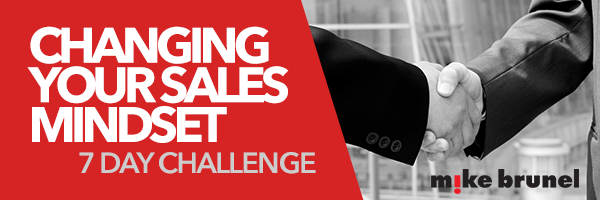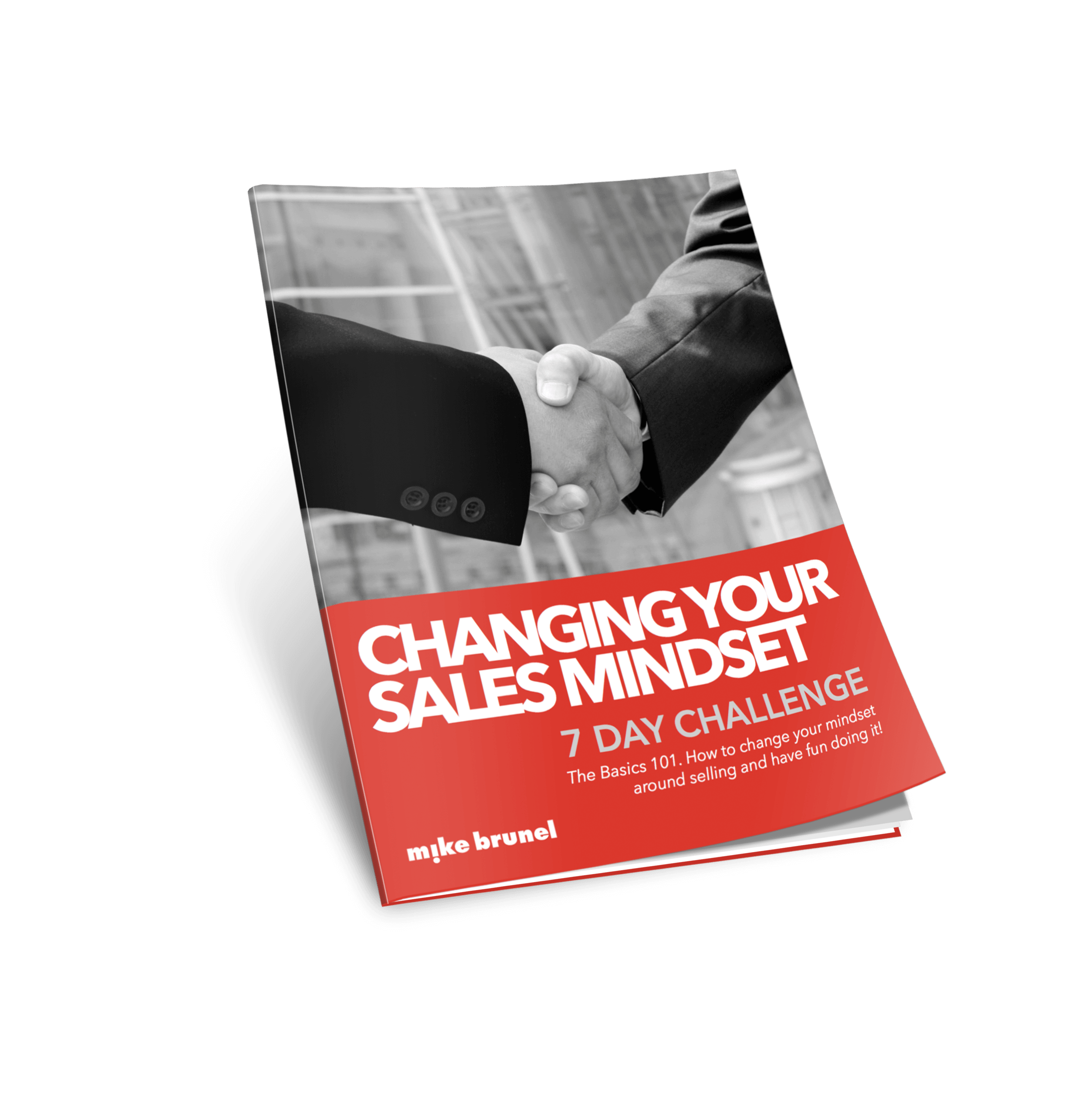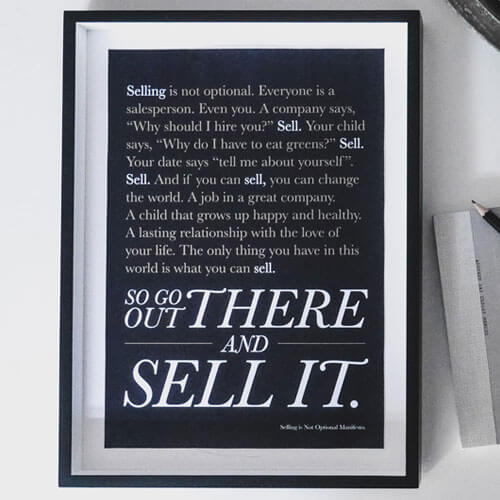by Mike Brunel | May 25, 2021 | Sales, Uncategorized

All Systems Go- The Journey Begins.
In my last blog, I talked about Selling what you can’t see, and how Doug Gold, my business partner and previous owner of the More FM network came up with an idea to sell media inventory that went on to dominate the direct media sales world for well over 20 years.
After his first launch of the Gold Key Programme in Wellington New Zealand, we knew we were on to something special. The product and the problem had changed, as had our approach. Spots and Dot selling were out, and membership was in.
Looking back, it was revolutionary, no one was selling media this way. Subscription-based selling had been around for 50 years, now everyone thinks its the ‘new new thing”. All we did was apply that model to selling inventory on media companies.
I was initially invited into the company as a consultant, but when I saw what Doug had created, it was as if a light went on, I knew that if I could build a sales system that could duplicate the concept he was presenting in that room in a hotel in Wellington, I could leverage it.
I sat in on all the presentations as an observer for a week, watched how all the salespeople sold. I monitored how the clients bought. I recorded the presenter’s speeches and analyzed all the ways that they presented the product. Then I went away and created the first Image Plus programme. A predictable lead generation product that would pretty much guarantee a result. Then I took it to my partner who had just gone to Australia to set up our consultancy services, the wonderful Mr. Duffy.
I think we are onto something”
Brian Duffy trusted me to package it up and take it to a client of his in Hobart, Tasmania. I went in and said, “If you follow this system, I can write a million dollars in revenue for you guaranteed” We launched the program and generated $1 million in four days. In today’s money that’s around $4.5 million. Our cut was a commission fee on the revenue generated.
Boom! We were smoking! I remember at the time watching Brian writing on a small business card how many we had sold each session, after the third session, he came over to me and said. ” I think we are onto something, I count thirty gone of our allocated 100 memberships and its only day one, I’m excited”!
Success is Natural
People look at that success and assume it takes a team of natural salespeople to develop and execute such an idea; they don’t believe they can do it themselves. Granted, I have a passion for the business, but I came from a very small country where nobody was doing this sort of thing. We had some brave, courageous risk-takers as our first clients.
The early adopters in Hobart said, “Yeah, we’ll give it a go” and we were grateful. You may not think you are a salesperson, but if you are in any kind of business, you are just as much a salesperson as Doug, Brian, and me, and you can find clients willing to take the leap with you.
Practice Makes Perfect.
Of course, the journey that NRS Media took has not always been easy. I remember one time I was presenting near Lincoln, Nebraska, expecting 300 people to attend our seminar. Five turned up.
When something like that happens, all you want to do is hide. If you could, you would actually crawl in a hole, pull the cover over the top, and not come back out. Sometimes it seemed like I was on my own and the rebuffs were never-ending. I had a bit of natural resilience, but it really is a lonely place, selling in America is a tough gig. Many people avoid sales because they fear rejection.
Sell something you Believe in.
What you have to remember, though, is that if you are doing something you love, selling something you believe in, then you are performing a service. You are not ripping off the customer, or doing the wrong thing by them. Someone is going to buy it from you. As long as you remember that, you can lift your head back up and start again.
Take Flight from Fright
You should realize that most people don’t take naturally to selling. I often see people so frozen they’re afraid to pick up the phone. Folks freeze with fear, unable to make the call. They’re paralyzed with fright. Excuse my language, but they’re sh*$$!ng themselves because they’re so afraid of the reaction. Many people find selling terrifying; it’s a natural human reaction.The thing is, this fear comes through in their work and makes them less effective.
If you own a product, service, or a business, you have to sell. If you’re passionate, believe in that product, and know that your customer should have it, then don’t be afraid to go and present it.
Try not to think of it as asking a yes-or-no question. Instead, picture yourself helping the customer through the decision-making process. Simultaneously, you come to comprehend their needs, wants, and desires. If you can honestly say, “Look, this is my product. I believe in it. I think it’s right for you,” and you come from a position of integrity people will respond. All it takes is a shift in perspective. Stop thinking, “I’m not in sales.” Reframe that thought.
Call it Something Else.
Call it something else. Recognize it for the relationship building process it really is. Changing my mindset has helped me personally banish the fear of rejection. At first, I tried half-heartedly and then gave up, just like anyone else. I realized, though, that if I didn’t change the way I thought about sales, I was going to lose. Today, I help salespeople change their frame of mind so they’re working steadily toward a reward rather than flailing about trying to avoid failure.
I remember working with a new salesperson on this issue. He was seriously afraid of going out and talking to people, so we gave him some new words to practice just before the sales call.
We asked him to say “relationship building” instead of “selling” in his mind and we saw right away the fresh connections he was making. His new vocabulary changed his mindset. He was much more comfortable—and successful—in his calls after he implemented this simple tool.
Successful sales also means maintaining relationships with clients over a long time period without getting the payoff of a “yes.” In the early days of my business, I remember approaching clients who would say no three, four, or five times. I considered that a failure. I thought, “Well, I just can’t do it.”
What did I learn?
Successful sales also mean maintaining relationships with clients over a long time period without getting the payoff of a “yes.” In the early days of my business, I remember approaching clients who would say no three, four, or five times. I considered that a failure. I thought, “Well, I just can’t-do it.”
What I discovered, though, was that I had to see rejection as a temporary setback and make plans to move on. I had to say to myself, “Okay, Mike, what did you learn and what could you do differently? Could you apply a different approach to that problem? Let’s try it and see what happens then.”
If you want to build leverage into your business like we did, then let’s talk.
Selling is easy “it’s just how you think about it”
Mike
PS. Not ready for a catch-up call then dive into my ‘new’ just-released audio programme

by Mike Brunel | May 18, 2021 | Strategy, Uncategorized

When I came into media, my main challenge was to sell something invisible. I learned that people buy ideas more than things. They buy concepts, promotions, and methods for getting people into their stores.
In the early 90s, the media industry in New Zealand was entering deregulation. The government had decided to “open up the airwaves” and issue new opportunities for starting radio/media companies. Doug Gold the original owner of More FM (now Mediaworks) recognized an opening when he saw one. He obtained several licenses to operate new radio stations in cities and towns all over the country.
Culture First- The Rest Follows.
Doug had created an amazing culture and fun way of doing business at media companies he had previously managed. Once word got around that he was starting a new venture, former staff flocked to be on the journey with him. Some would not be receiving any incomes for several months, but they trusted him and believed that his latest project was going to be special.
The challenge for the new media enterprise was that they would be working in one of the most competitive categories in the world. Media bleeds money like a wounded bull and it is riddled with failures, obnoxious personalities, and owners with huge egos.
Doug’s personality, on the other hand, was just the opposite. He had courage, belief, and an unbending single-mindedness; the usual hurdles would not present a problem for him.
Starting off on an unusual note, Doug launched his new company with a product called The Gold Key program. When Doug had researched the best way to enter the advertising market, he had sought advice from hundreds of clients.
Needs Matter
He asked questions about everything. He asked what they wanted in their advertising, examined the paths they took in sales and marketing and observed their needs.
He knew it would be a lot easier—and less daunting—to ask for someone’s business if he already knew what that prospective customer needed. He was involved in every aspect of the business, down to the formatting of his own stations’ programmes.
One of the insights Doug gained from his research was that his advertising clients were sick of just buying “spots and dots.” They wanted to belong to a group, a modern-day tribe of sorts.
Doug also discovered that clients needed to advertise and promote themselves on a continual basis. Constant exposure paid off and made advertising more affordable to small-to-medium companies. Many big companies already supported their products and services this way, and it worked well.
They were the big guys, though; they could afford it; with their resources, they could simply outshout anyone else’s marketing. Now even the little guy could compete.
When it has gone it’s gone.
Most media companies generate their income through advertising. It’s their inventory, just like all the stock in a retail store. The only difference is if that “inventory” is not sold that minute, hour, or day, then the opportunity at that moment is gone forever. Once the advertisement that was due to be sold at midday is NOT sold, it’s gone. The use-by date has expired.
The American Express of Media
Doug understood his clients and the market, so he created a membership program. Way before XERO and Apple introduced their subscription services.
He asked his clients to commit to him for twelve months. Each advertiser would receive a monthly allocation of commercials; in return, they received benefits like travel deals, access to unsold airtime, and upgrades to better commercial times. While perks like this are common today, they were a novelty in media back then.
Selling this way works best in a seminar situation, in what is often referred to as “one-to-many” selling. Every client who attended Doug’s seminar received valuable information on how to advertise and promote their business.
Any advertiser who agreed to a membership also earned a free chance at winning a brand new BMW. This was unheard of at the time. It was mind-blowing, really, and took the market by storm.
In year one, Doug and his amazing team sold $1.2 million in revenue before they even opened the media company and before one song was played. In today’s dollars that would be around $4.6 million. What sold it?
Creating a Selling System.
The key was a combination of belief, systems, a great team, and innovation. Doug generated hundreds of memberships and improved his already stellar reputation.
Over several years, Doug’s product became known as the Image Plus program. With my other founding partner, Brian Duffy, driving the helm, and me writing all the sales manuals and implementing the training programmes, we then took on the world.
These days, that one product is part of a suite that my old company NRS Media sells in over 400 media companies in twenty-three countries, in eleven languages. In the past ten years alone, the Image Plus program has generated over $300 million annually in revenue for its clients.
The start of something special. These days you would have called it a start up. The only difference that over the next 20 years, NRS Media never borrowed a cent, zip, zero. All self-funding.
An idea tested refined, then proved.
Why did it sell? The market was ready for it.The media companies advertisers wanted to buy it, and in the end, there were 40,000 of them that bought it every year for 15 years.
In my next blog, I will unveil the secret to creating the system that built that one product, which went on to dominate direct selling in media across the globe.
Until then.
Mike
PS. Dreaming of increasing your sales? Down load my FREE 7- Day Challenge Now!

by Mike Brunel | May 12, 2021 | Sales

I understand people’s reluctance to think of themselves as salespeople. I had a love/hate relationship with sales myself when I was younger. I grew up on a small farm on the coast of New Zealand, a place I loved.
My father looked after the farm after his four brothers went to World War II. From the age of 15, he worked on that farm, developed it, and expanded it. By the time he was 35, it was clear that some of his brothers would never let him buy it, though; they wanted their share. In the end, sadly, my father had to sell.
Overnight, we moved to a new town and Dad travelled all the time for work. I didn’t know anybody at my new school. The new kid always gets bullied and picked on, and I was no exception.
I wasn’t happy, but I learned to adapt. I was forced to find a way to meet new people and create new friendships. That was probably the real start of my sales career.
I may have been a hesitant salesperson at age seven, but I was already learning how to open up relationships with others.
Life Lessons Learnt.
As a young man, I left a small town in New Zealand to live in Sydney, Australia. Perhaps 15,000 people lived in my hometown and at 18, I moved to a city that housed four million.
At 18 I was reasonably good at rugby—a national obsession in New Zealand—so I got to play in Sydney, where I also got a job selling stationery to newsagents. Every Sunday evening I would put all the goods that I wanted to sell into a big blue bag. On Monday morning, I’d throw it in the back of the car and drive from the suburbs into the city of Sydney.
I’d park my car and walk around, calling on my clients and also knocking on the odd door. I sold everything—rubber bands, ballpoint pens, books, and stationery—out of that big blue bag. I practiced all the skills needed to be a strong salesperson. I was perfecting my craft.
On the Move
When I later gave up on sports and moved to London, I could not find a sales job, or so I thought. After six months spent cleaning carpets in upscale homes, I was offered an estimator’s position with the cleaning company.
I was a salesperson once again. There I was, in my early 20s, driving all over London, quoting jobs in the most luxurious homes imaginable. I met some amazing people and learned to negotiate and sell on a whole new level.
Sadly, I had to return home and ended up bunking with my brother. After several weeks of moping around his house, I let him convince me to apply for an advertising executive position for a local radio station.
I borrowed his suit and shoes for the interview. The suit was a little tight and the shoes a lot. I remember trying not to let the suit sleeve stay fixed on my elbow when I shook the interviewer’s hand.
Guess what? I got the job.
I had never sold advertising before, but I was willing to learn. I sold ideas to advertisers and small businesses for the next few years. I saw firsthand how small businesses ticked. I brought in entertainers to open stores, launched products, and ran promotions. I did every type of campaign that could be done.
The businesses loved it and I did too. The job taught me that I had to stop selling the air time itself and start selling the result of a promotion or event.
Eventually, I was recruited to manage a sales team for another media company a few hundred miles away.
There I met my first true mentor, Brian Duffy, who taught me to look at sales and management, and myself, differently.
Brian coached me to be a good manager and a good person. Oh, I made mistakes, but his guidance and support helped form beliefs that I carry with me today.
Mentors pave the way.
Mentors pave the way, and Brian mentored me long-term, into my next job and eventually into NRS Media. Brian’s guidance led me to media broking, where I met mountaineer Rob Hall, another great mentor.
As much as I enjoyed media broking, though—the perks were considerable, including good food, lots of socializing, and free stuff on top of excellent money—the seductive sheen soon wore thin for me.
I knew I should be doing something else, but I didn’t know what it was. I was not happy. I thought that maybe it was time to take more risks in my life; I knew something was missing.
I was looking for something to fill that space and then one day I got a phone call that would change my life forever. Opportunities often come to you unexpectedly if you make room for them. It was Brian again. “Mike, let’s meet for coffee,” he said, “I have an idea.”
Even today, I can see both of us sitting there in the café. He says, “Look, I’m moving to Australia, but I have clients here I want you to look after.
Join me and my partner in this future opportunity, but you’ll have to pay to get in.” It cost $5,000 to get into the business. It was a lot of money, but it was taken as a show of commitment.
They wanted me, but they wanted me to pay to get in? Was it worth the risk?
The partner’s name was Doug Gold. He had started a new media company called More FM. He also had a consultancy company with Brian that was called Persuaders Concepts. (Can you believe that name)
His More FM Network quickly became the second biggest media network in the southern hemisphere. It is now known as Mediaworks. Doug’s unique ideas influenced industries across the globe. I didn’t know that then, but I took a leap anyway and said “yes.”
Over the next 20 years, that yes became NRS Media.
A valuable lesson I learned is that opportunities do not come when you want them too…. be scared and afraid is part of the ‘doing’
Next week I will talk about how NRS Media became the powerhouse in media sales globally, with no start up money, no investors, just luck, and timing, and passion and a great team of people.
Until then
Good selling
Mike.
P. S Tired of missing out on those sales and not knowing why! Try our FREE CHANGING YOUR SALES MINDSET -7 DAY CHALLENGE

by Mike Brunel | May 4, 2021 | Sales, Strategy, Uncategorized

I am always being asked what makes good sales training and coaching? Here are five tips I hope can help you make the right decision when it comes to hiring any sales trainer or sales coach.
1.The sales team don’t see the sales training as relevant to them.
Usually what happens is that a sales person will be sent on a sales training course and they get there and it’s straight out of a manual. Taught to them by rote and disappointing.
2. The ‘one size fits all’ approach doesn’t suit their business situation.
The trainer has not spent the time to evaluate the sales persons needs. Tailor making specific programmes work better. Before any training ask the sales trainer to work with you on YOUR outcomes for the training programme.
3. Lack of Outcomes once at the course.
This is similar to point two, sales people have different needs, just like their clients, many times sales people arrive at course and at are never asked what their specific outcomes today for this course.
4. Sales trainer, not a sales person.
In this case, it’s more about creditability, if the trainer has no experience selling in any form, it’s difficult to build rapport with the audience you are training. The theory is fine, but not realistic. Sales experience is must for a trainer.
5. Learning as you go.
If the training is not carried out in an environment of learning and facilitation it’s seen as boring and lacking in depth. In the ever increasing world of soft skills training involving your participants in ‘learning by doing’ is a must.
These tips have certainly helped my clients and may help you.
Good selling
ABOUT THE AUTHOR:
Mike Brunel – Author, Sales Trainer and Coach at Mikebrunel.com. Mike started mikebrunel.com after being a successful entrepreneur. He was a co-founder of NRS Media a global leader in media sales. His products and services generated $350 million a year in revenue for his clients. He sold that business in 2014 and now consults to business owners throughout New Zealand and beyond. He works with any business that wants to increase sales that have a sales turnover of 1/2 million up to $10 million. He works closely with digital and marketing services to help attract sales for his clients.






